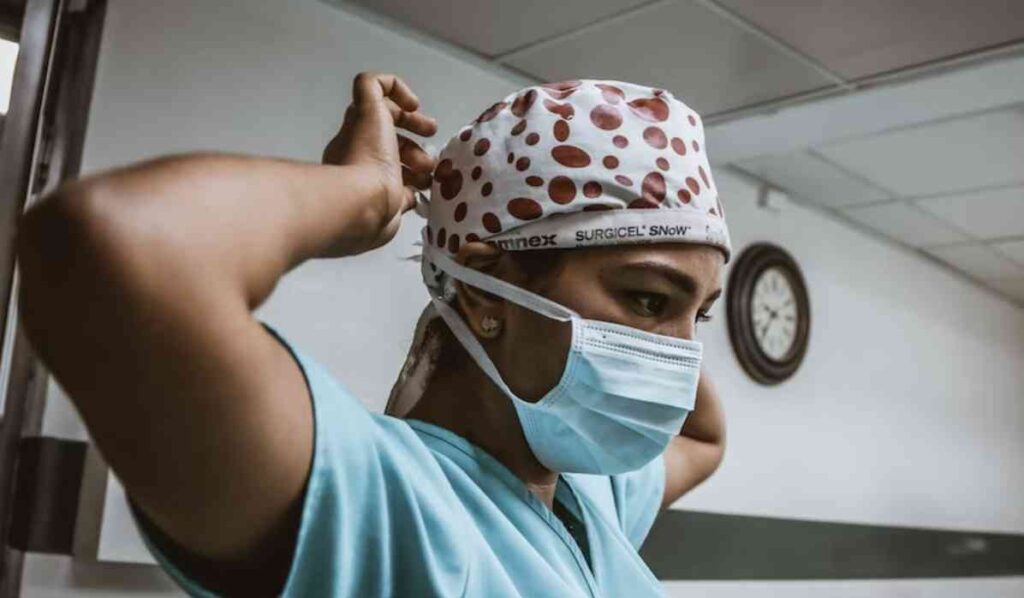Can INTPs Be Doctors? Important Factors to Consider

Medical practice is often associated with traits such as empathy, strong communication skills, and the ability to handle stress with ease.
These qualities are undoubtedly essential in the field, but what about individuals with different skills and personality traits? Specifically, what about INTPs?
These individuals are known for their analytical minds, strategic thinking, and independent nature. While these traits may seem at odds with the traditional image of a doctor, they may actually be advantageous in certain aspects of medical practice.
However, before diving into the potential benefits of INTPs as doctors, it’s important to consider the potential pitfalls.
For instance, their analytical nature may lead to a tendency to overlook emotional and social cues, potentially creating communication barriers with patients. Additionally, their introverted nature may make it difficult for them to connect with patients on a personal level.
So, can INTPs be successful doctors? The answer is not a simple yes or no. Instead, it’s essential to evaluate the potential benefits and challenges that INTPs may face in medical practice.
In this article, we’ll explore the unique strengths and limitations of INTPs in the medical field, providing insights for both aspiring INTP doctors and those who work alongside them.
INTPs as Doctors: A Perfect Match or a Risky Endeavor?
When it comes to INTPs as doctors, there is much debate about whether it is a perfect match or a risky endeavor.
While the analytical and strategic thinking, creativity, and independent work style that INTPs possess may make them well-suited for the job, there are also some challenges to consider.
For example, the day-to-day life of a physician can be highly routine and involve seeing many patients with similar conditions. This can be challenging for INTPs who value variety and novelty in their work. However, there are also many opportunities for INTPs to solve complex medical problems in unique and innovative ways, which can be exciting and enjoyable.
One challenge for INTPs in the medical profession is the need for strong communication and emotional intelligence skills. Building relationships with patients and collaborating with colleagues are critical components of the job, and these tasks may not come naturally to some INTPs.
However, with practice and conscious effort, INTPs can improve their communication skills and develop strong relationships with patients and colleagues.
Another consideration is the organizational demands of the job. While INTPs may struggle with self-organization, office assistants are available to help with administrative tasks. Additionally, INTPs may need to prioritize their workload and set clear boundaries to avoid burnout.
While there are some challenges to consider, being a physician can be a fulfilling career for INTPs interested in problem-solving and helping others. It is crucial for INTPs to carefully consider the day-to-day realities of the job, including the routine nature of patient care and the need for solid communication skills.
However, with the right mindset and support, INTPs can thrive in the medical profession and make valuable contributions to patient care.
RELATED: Juno Sextile North Node Synastry: Love & Friendships
Advice For The INTP Doctor Who Wants To Thrive
As an INTP in medicine, it’s essential to understand and embrace your unique strengths and weaknesses. While your analytical skills and strategic thinking may be well-suited for certain areas of medicine, you may also face emotional intelligence and communication challenges.
To thrive in medicine, finding your niche and pursuing a specialty that aligns with your interests and strengths is essential. Additionally, developing strong communication skills and building relationships with patients and colleagues can help you succeed in the field.
It’s also important to prioritize continuous learning and finding a healthy work-life balance to ensure your well-being and avoid burnout. By embracing your strengths, seeking out fulfilling work, and prioritizing your well-being, you can thrive as an INTP in medicine.
Improving communication skills is essential for INTPs in medicine who want to succeed in building strong relationships with patients and colleagues. Tips for improving communication skills include:
- Actively listening to patients and colleagues to understand their concerns and perspectives.
- Using clear and concise language to communicate medical information effectively.
- Being mindful of nonverbal cues to accurately interpret others’ emotions and responses.
Building strong relationships with patients and colleagues is also vital for INTPs in medicine, even if they may find it challenging due to their introverted nature. Strong relationships can lead to better patient outcomes, more effective teamwork, and increased job satisfaction.
INTPs can build relationships by finding common ground with patients and colleagues, being approachable and open-minded, and showing empathy and respect. INTPS need to recognize the importance of communication and relationship-building in medicine and to work on improving these skills to succeed in their careers.
Achieving a healthy work-life balance can be a significant challenge for INTPs in medicine. They may struggle with disconnecting from work and prioritizing personal relationships outside of work. This can lead to burnout, negatively impacting their professional and personal lives.
To find a healthy balance, INTPs can set clear boundaries between work and personal life, such as avoiding checking work emails outside working hours or designating specific times for individual activities.
Prioritizing self-care is also crucial, such as making time for exercise, healthy eating, and sleep. INTPs can also find ways to incorporate hobbies and interests into their daily routine to help them relax and recharge outside of work.
By prioritizing their well-being and personal relationships, INTPs can find a healthy balance that allows them to excel in their careers while also enjoying a fulfilling personal life.
INTP Medical Specialty: Which Are Best Suited For Them?
INTPs possess several unique strengths that may be advantageous in certain areas of medicine. Firstly, their strong analytical skills can be beneficial in fields such as radiology and pathology, where precise and accurate analysis of medical images and tissue samples is crucial for diagnosis and treatment planning.
Secondly, INTPs’ strategic thinking and ability to see patterns and connections can be an asset in research and clinical trials, where identifying trends and designing experiments is necessary.
Additionally, their creativity can be beneficial in fields such as plastic surgery or medical illustration, where a visual representation of a patient’s condition is required.
Finally, INTPs’ independent work style may be well-suited to specialties such as radiology or pathology, which require individual analysis and interpretation of medical data.
Overall, INTPs’ unique strengths and abilities can be applied to a variety of medical specialties, and they should consider these strengths when deciding which specialty to pursue.
Specialties that don’t require much talking and showing emotions are best. These include jobs that require critical thinking, detachment, analysis, logic, the ability to take in and work with different pieces of information, and staying calm under pressure.
Radiology: INTPs may enjoy the independent and analytical nature of reading and interpreting medical images.
Pathology: INTPs may appreciate the intellectual stimulation of diagnosing and studying diseases.
Research: INTPs may excel in medical research due to their analytical and creative thinking skills.
Anesthesiology: INTPs may appreciate the technical nature of administering anesthesia and monitoring patients during surgery.
Psychiatry: INTPs may enjoy mental health treatment’s analytical and diagnostic nature.
Struggles INTPs Might Face in Med School

Med school can be a challenging environment for any student. Still, for INTPs, there may be some unique struggles to consider.
One potential challenge is the heavy emphasis on memorization and rote learning, which can be tedious and frustrating for INTPs who prefer to focus on understanding concepts and exploring ideas in-depth. This can lead to feelings of boredom and disengagement, making it more challenging to stay motivated and on track with their studies.
Another struggle INTPs may face in med school is the need for strong interpersonal skills. Medicine is a collaborative field, and students must work closely with their peers and professors to succeed.
This can be a difficult adjustment for INTPs who value independence and autonomy. They may find it challenging to participate in group projects, communicate effectively with others, and build strong relationships with their classmates and mentors.
In addition to these challenges, INTPs may struggle with med school’s high-pressure and fast-paced nature. The workload can be overwhelming, and there may be little time for self-reflection or personal pursuits. This can lead to feelings of burnout and a lack of work-life balance, which can ultimately impact their academic performance and mental health.
Despite these struggles, it is essential to note that many INTPs have succeeded in med school and become successful physicians. With the proper support and strategies, INTPs can overcome these challenges and thrive in their studies.
This may include finding study techniques that work for them, seeking out opportunities for independent research, and developing their communication and collaboration skills through extracurricular activities and mentorship. By recognizing and addressing these struggles head-on, INTPs can set themselves up for success in med school and beyond.
RELATED: INTP Capricorn: Personality Breakdown
Inside the Mind of an INTP Surgeon: Challenges and Rewards
INTP personalities are well-suited for a career in medicine, but what about becoming a surgeon?
The path to becoming a surgeon is rigorous and demanding, but INTPs may find the challenge appealing. However, being a surgeon requires a high level of technical skill, attention to detail, and the ability to handle high-pressure situations. These are all qualities that INTPs can possess, but they may struggle with the intense focus required in surgery.
One of the biggest challenges that INTP surgeons may face is the need to be precise and detail-oriented. Surgeons must have excellent hand-eye coordination and be able to work precisely.
This can be difficult for INTPs, who favor abstract thinking and creative problem-solving. The demanding schedule of a surgeon can also be a challenge, with extended hours and the potential for high-stress levels.
However, there are many rewards to being a surgeon. INTPs who thrive on intellectual challenges may find the complexity of the surgery and the ability to solve complex problems very fulfilling. Additionally, the high stakes involved in surgical procedures can be a source of motivation for INTPs who enjoy taking on significant responsibility.
Some surgical specialties that may appeal to INTPs include neurosurgery, orthopedics, and cardiac surgery. These fields require a high degree of technical skill and attention to detail but also offer the opportunity to work with advanced technology and cutting-edge techniques.
Becoming a surgeon is a challenging and demanding path that may be fulfilling for INTPs who enjoy intellectual challenges and have the required technical skills. However, INTPs may need to work on their ability to focus and handle the stress of high-pressure situations to excel in this field.
RELATED: MBTI Zodiac Combinations: Mixing Astrology and Personality
Final Thoughts
In conclusion, being an INTP doesn’t automatically make someone a great doctor. Still, it can certainly be advantageous in many ways. INTPs possess unique strengths such as analytical skills, strategic thinking, creativity, and an independent work style that can make them well-suited for specific areas of medicine.
While there may be challenges, such as maintaining a work-life balance and improving communication skills, INTPs can overcome these obstacles and thrive in their chosen field. With dedication, passion, and a willingness to learn, INTPs can become successful and fulfilled doctors, applying their rational approach to help heal and improve the lives of others.
